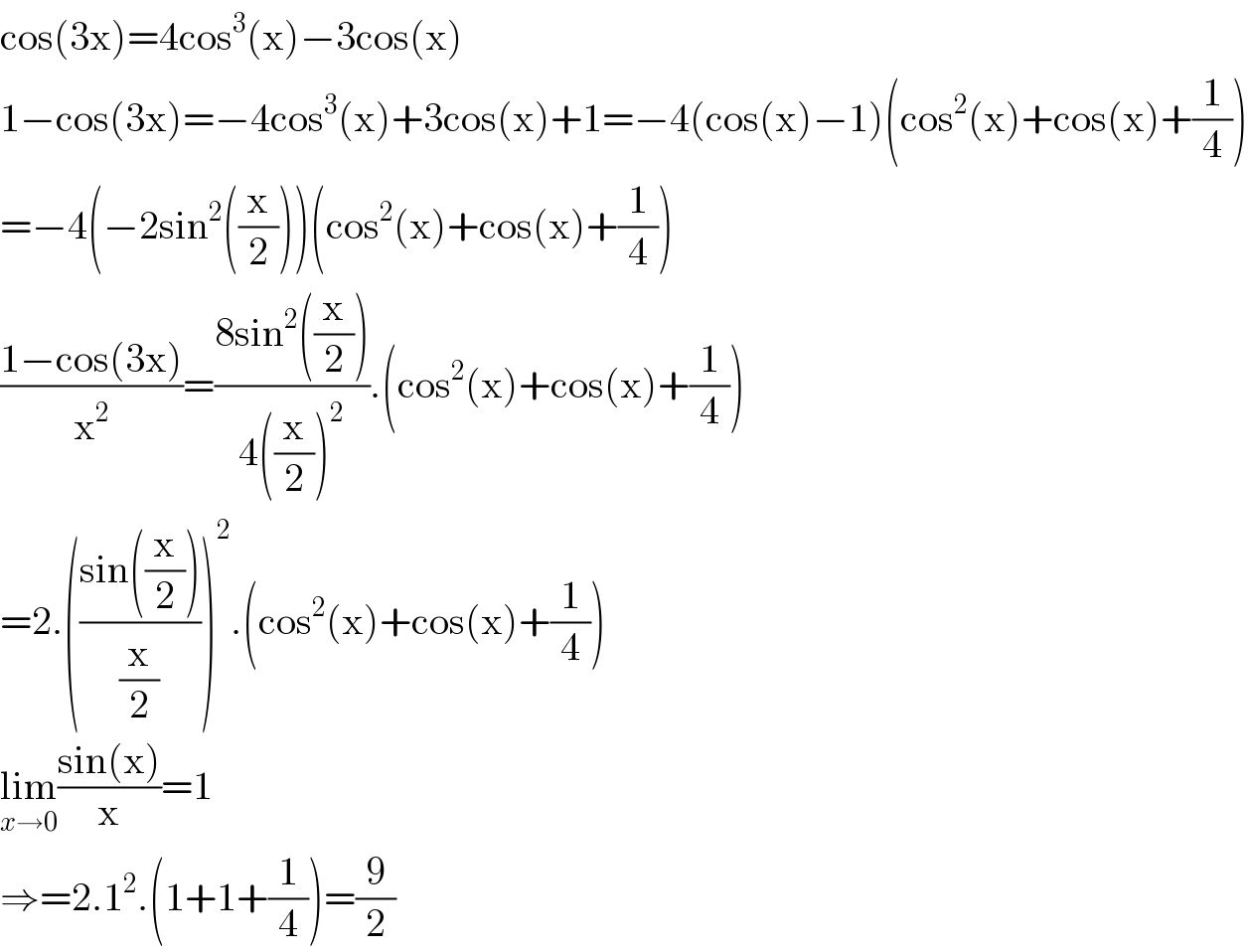
Question and Answers Forum
Question Number 73117 by aliesam last updated on 06/Nov/19

Commented by mathmax by abdo last updated on 06/Nov/19

Answered by mind is power last updated on 06/Nov/19

Answered by malwaan last updated on 07/Nov/19
![lim_(x→0) (([1−cos(3x)]×[1+cos(3x)])/(x^2 ×[1+cos(3x)])) =lim_(x→0) ((sin^2 (3x))/(x^2 [1+cos(3x)]))=(3^2 /(1+1))=(9/2)](Q73161.png)
| ||
Question and Answers Forum | ||
Question Number 73117 by aliesam last updated on 06/Nov/19 | ||
 | ||
Commented by mathmax by abdo last updated on 06/Nov/19 | ||
 | ||
Answered by mind is power last updated on 06/Nov/19 | ||
 | ||
| ||
Answered by malwaan last updated on 07/Nov/19 | ||
![lim_(x→0) (([1−cos(3x)]×[1+cos(3x)])/(x^2 ×[1+cos(3x)])) =lim_(x→0) ((sin^2 (3x))/(x^2 [1+cos(3x)]))=(3^2 /(1+1))=(9/2)](Q73161.png) | ||
| ||